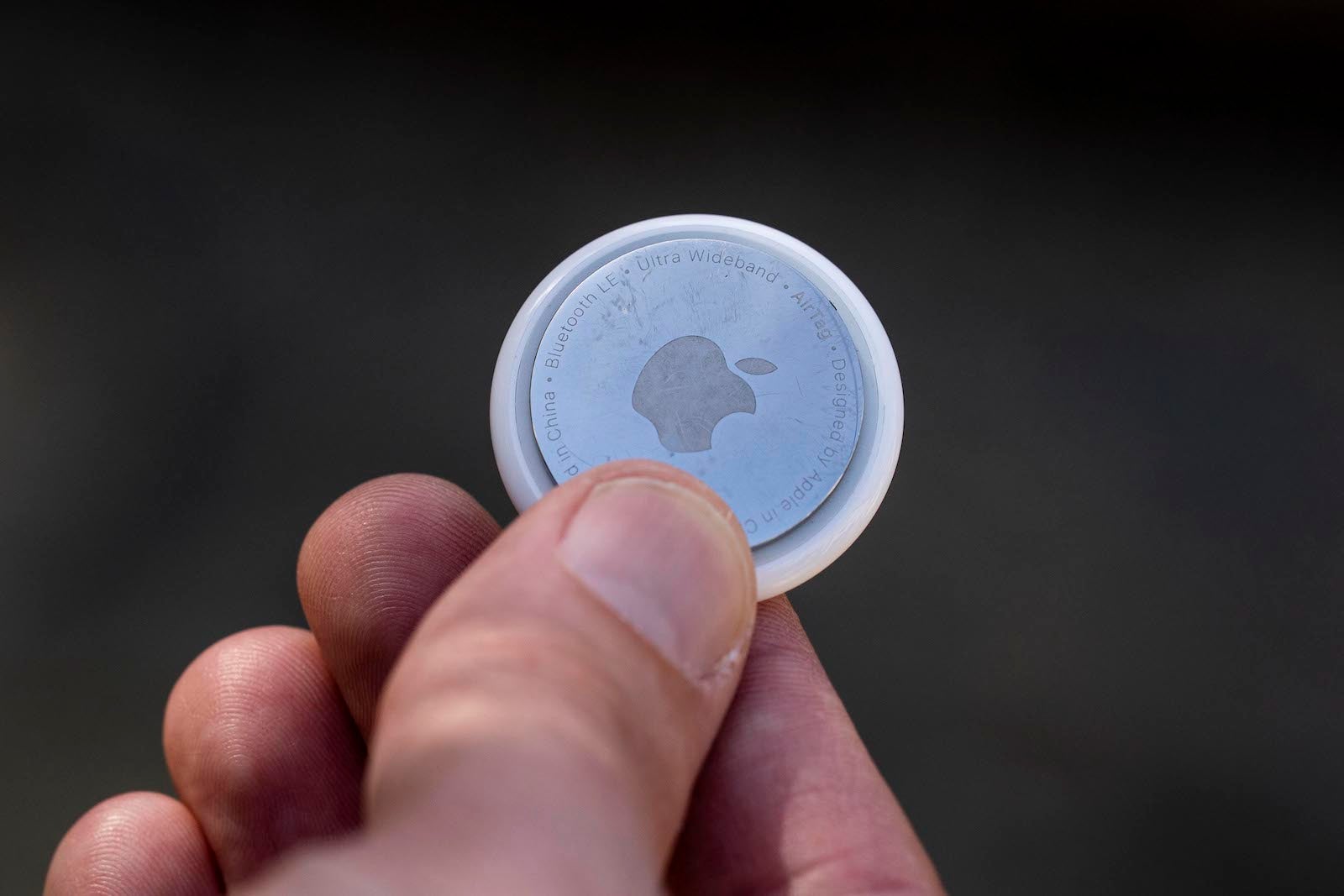AirTags have become a trending topic in travel during past year, touted as a simple and easy way for flyers keep track of their checked bags – even if their airline can’t.
The small device can be dropped into luggage and transmits its location to Apple devices, something that’s helped scores of passengers pinpoint the location of a bag after being mishandled by their carrier.
Now, headlines have begun circulating that one of the biggest airline groups will no longer allow them.
Want more airline-specific news? Sign up for TPG’s free biweekly Aviation newsletter
“Baggage trackers belong to the category of portable electronic devices and are therefore subject to the dangerous goods regulations issued by the ICAO (International Civil Aviation Organization) for carriage in aircraft,” Lufthansa spokesman Boris Ogursky said in an emailed statement . “Accordingly, due to their transmitting function, the trackers must be deactivated during the flight, similar to cell phones, laptops, tablets, etc.”
While it may seem like Lufthansa is moving to ban the devices, it may be that the carrier hasn’t changed any policy after all.
Instead, it seems it is now just enforcing a longstanding prohibition that covers AirTags as their use in checked luggage has proliferated in recent months.
The prohibition is on the lithium-based batteries that power the devices. Guidelines from ICAO, the International Civil Aviation Organization, can be strictly interpreted to mean that these devices are banned.
Lufthansa told TPG it would respond with further clarification beyond the above statement, but it was unclear when that might come.

But Lufthansa’s apparent stepped-up enforcement of the ICAO guidelines raises even more questions.
First, might other airlines cite the ICAO rules as more travelers use them? And, second, how will Lufthansa’s policy be enforced? Customers might be asked about the AirTags while checking bags in, but if they’re not — or if they lie — security screeners are not searching for the devices when bags are checked in. In the U.S., the Transportation Security Administration explicitly permits AirTags in both checked and carry-on bags.
It all comes after a summer of travel disruptions — including at Lufthansa’s hub at Frankfurt Airport (FRA) — which coincided the AirTag’s rise to become an invaluable tool for locating lost and mishandled checked luggage.
Now, customers of Lufthansa – as well as Lufthansa Group carriers like Austrian, Swiss and Brussels – may have to rethink the use of AirTags.
What’s creating concern for AirTags in checked luggage is their lithium metal batteries, specifically a type called a CR2032, which is the size of a small coin and traditionally powers wristwatches and key fobs for cars. They carry about 0.1 grams of lithium metal content — a minuscule amount.
But the ICAO regulations cited by Lufthansa say all items with lithium-powered batteries can’t be checked if they cannot be powered off – like AirTags.
The concern has to do with fire risk. It is much easier to extinguish an inflight fire, using onboard fire extinguishers, when something catches fire in the cabin. It’s not as easy to extinguish a fire in the aircraft’s cargo compartment.
But the risk is unclear for the small amount of lithium present in AirTags: there are no known instances of the devices catching fire in the cargo hold of aircraft.
And, so far, U.S. agencies like FAA or TSA haven’t indicated they intend to follow Lufthansa’s lead to explicitly disallow the tracking devices. Even Lufthansa has said it’s in favor of an exemption that would OK trackers with low battery and transmission power for checked baggage.
For now, however, travelers’ immediate attention will turn to see how Lufthansa enforces the guidance – and to wonder if airlines elsewhere in the world may do the same.
Matt Blake contributed reporting.



